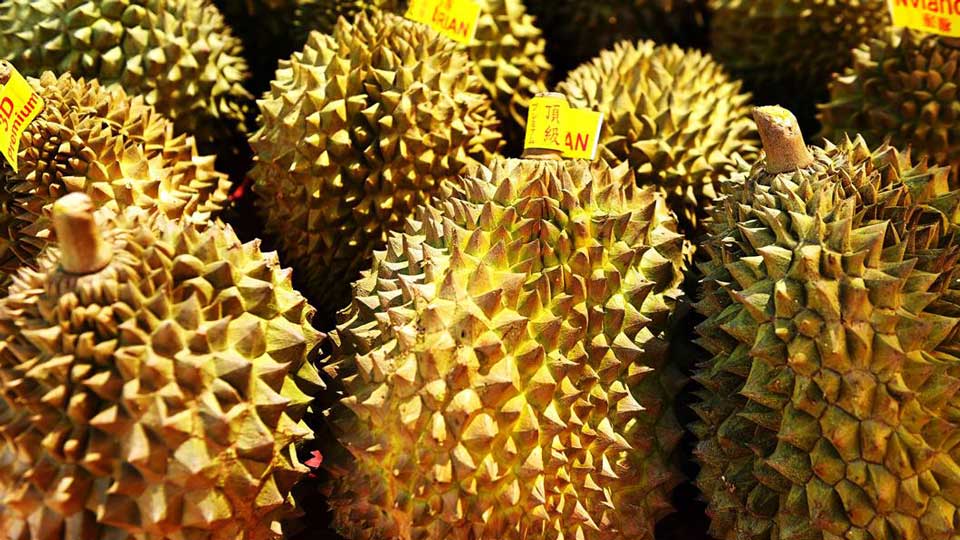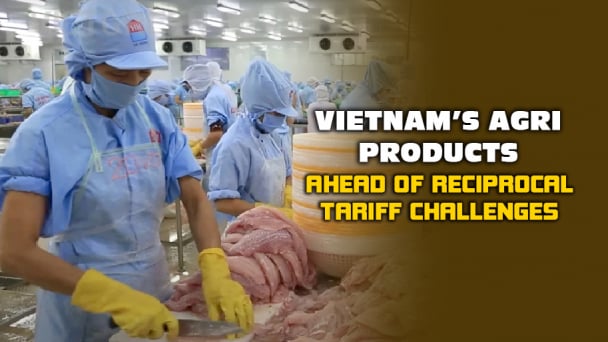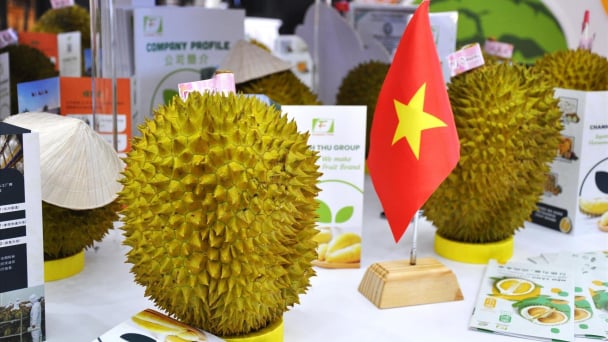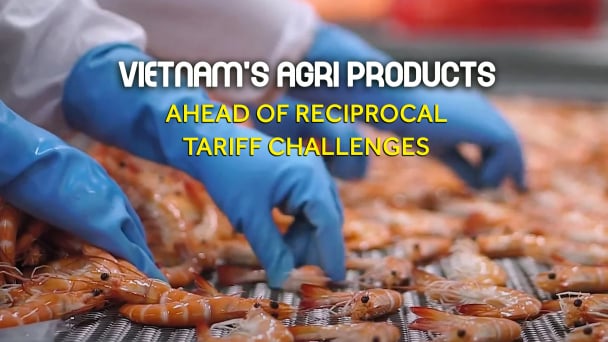May 30, 2025 | 09:28 GMT +7
May 30, 2025 | 09:28 GMT +7
Hotline: 0913.378.918
May 30, 2025 | 09:28 GMT +7
Hotline: 0913.378.918
Poonpong Naiyanapakorn, director-general of TPSO, attributed this success to growing global demand and the appeal of Thai fruit due to its quality and distinctive flavors.

Durians for sale in Qingdao in 2024. Photo: CFOTO/Nur.
In 2024, Thailand's total fruit exports reached US$6.51 billion, surpassing the five-year average of US$5.86 billion and accounting for 22.6% of total agricultural exports. Fresh fruit alone generated US$5.15 billion, with durian, longan, mangosteen, young coconut, and mango as the primary export items.
The country exported 859,183 tons of durian worth US$3.76 billion, contributing 72.9% of the total fresh fruit export value. China remained the dominant market, receiving 97.4% of these shipments, followed by Hong Kong, South Korea, Malaysia, and the United States.
Longan exports totaled 527,927 tons, generating US$571 million, with China accounting for 73.1% of shipments. Other markets included Indonesia, Vietnam, Malaysia, and India. Mangosteen exports reached 284,860 tons worth US$491 million, with 91% going to China, followed by Vietnam, South Korea, the US, and the UAE.
Thailand exported 257,428 tons of young coconuts worth US$217 million, with major destinations including China (82.7%), the US, Hong Kong, Singapore, and the Netherlands. Mango exports amounted to 106,753 tons, valued at US$33 million, with South Korea leading at 61.8%, followed by Malaysia, Japan, Vietnam, and Laos.
Mr. Poonpong noted Thailand's heavy reliance on China for fresh fruit exports, raising concerns over increased competition—especially for durian. Since 2023, China has allowed durian imports from not only Thailand but also Vietnam, the Philippines, and Malaysia, while also tightening import regulations.
To stay competitive, Thailand aims to diversify its export markets, targeting new destinations such as the US, Germany, the Netherlands, and the UK. This strategy is intended to reduce dependency on China and help absorb potential market pressures, according to Mr. Poonpong.
The Commerce Ministry plans to strengthen exports by entering new markets, supporting value-added agricultural processing, and preparing strategies to manage production and maintain market stability.
freshplaza

(VAN) Reciprocal tariffs are exerting pressure on U.S. exports, prompting Vietnamese firms to shift their focus to Muslim markets, Thailand, and Brazil.

(VAN) A free booth for two years at Xinfadi, Beijing's largest wholesale market, will be allocated to Vietnam's agricultural products.

(VAN) Vietnamese shrimp exporters are actively looking for alternative markets and accelerating shipments to the United States in response to the pressure of impending reciprocal tariffs. This is occurring during a temporary tariff suspension.

(VAN) The import-export turnover between Vietnam and Singapore rose amid a trade rebound, with machinery, electrical equipment, and fuels making up the majority of the transaction value.

(VAN) Director General of the General Administration of Customs of China, Ms. Sun Mai Jun, has pledged to implement measures that will ease the import process for Vietnamese agricultural products.

(VAN) Although Vietnam is still increasing its coffee exports, the industry is currently in the process of determining market strategies in response to the U.S. imposition of reciprocal tariffs.

(VAN) With rising demand in Muslim-majority countries, Halal certification is becoming a critical passport for Vietnamese agricultural products seeking sustainable market access and consumer trust in the Middle East and Africa.